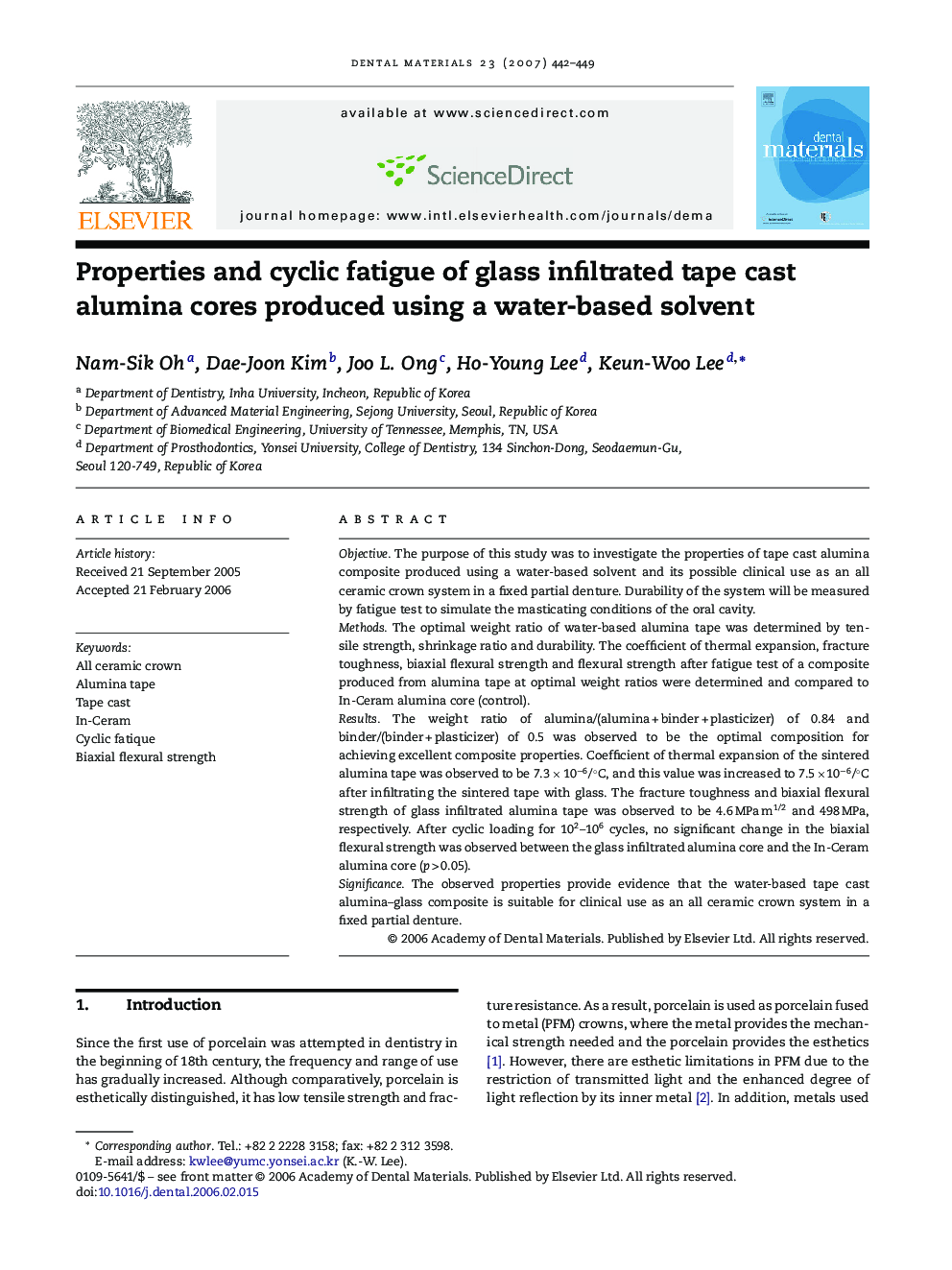| Article ID | Journal | Published Year | Pages | File Type |
|---|---|---|---|---|
| 1423158 | Dental Materials | 2007 | 8 Pages |
ObjectiveThe purpose of this study was to investigate the properties of tape cast alumina composite produced using a water-based solvent and its possible clinical use as an all ceramic crown system in a fixed partial denture. Durability of the system will be measured by fatigue test to simulate the masticating conditions of the oral cavity.MethodsThe optimal weight ratio of water-based alumina tape was determined by tensile strength, shrinkage ratio and durability. The coefficient of thermal expansion, fracture toughness, biaxial flexural strength and flexural strength after fatigue test of a composite produced from alumina tape at optimal weight ratios were determined and compared to In-Ceram alumina core (control).ResultsThe weight ratio of alumina/(alumina + binder + plasticizer) of 0.84 and binder/(binder + plasticizer) of 0.5 was observed to be the optimal composition for achieving excellent composite properties. Coefficient of thermal expansion of the sintered alumina tape was observed to be 7.3 × 10−6/°C, and this value was increased to 7.5 ×10−6/°C after infiltrating the sintered tape with glass. The fracture toughness and biaxial flexural strength of glass infiltrated alumina tape was observed to be 4.6 MPa m1/2 and 498 MPa, respectively. After cyclic loading for 102–106 cycles, no significant change in the biaxial flexural strength was observed between the glass infiltrated alumina core and the In-Ceram alumina core (p > 0.05).SignificanceThe observed properties provide evidence that the water-based tape cast alumina–glass composite is suitable for clinical use as an all ceramic crown system in a fixed partial denture.
